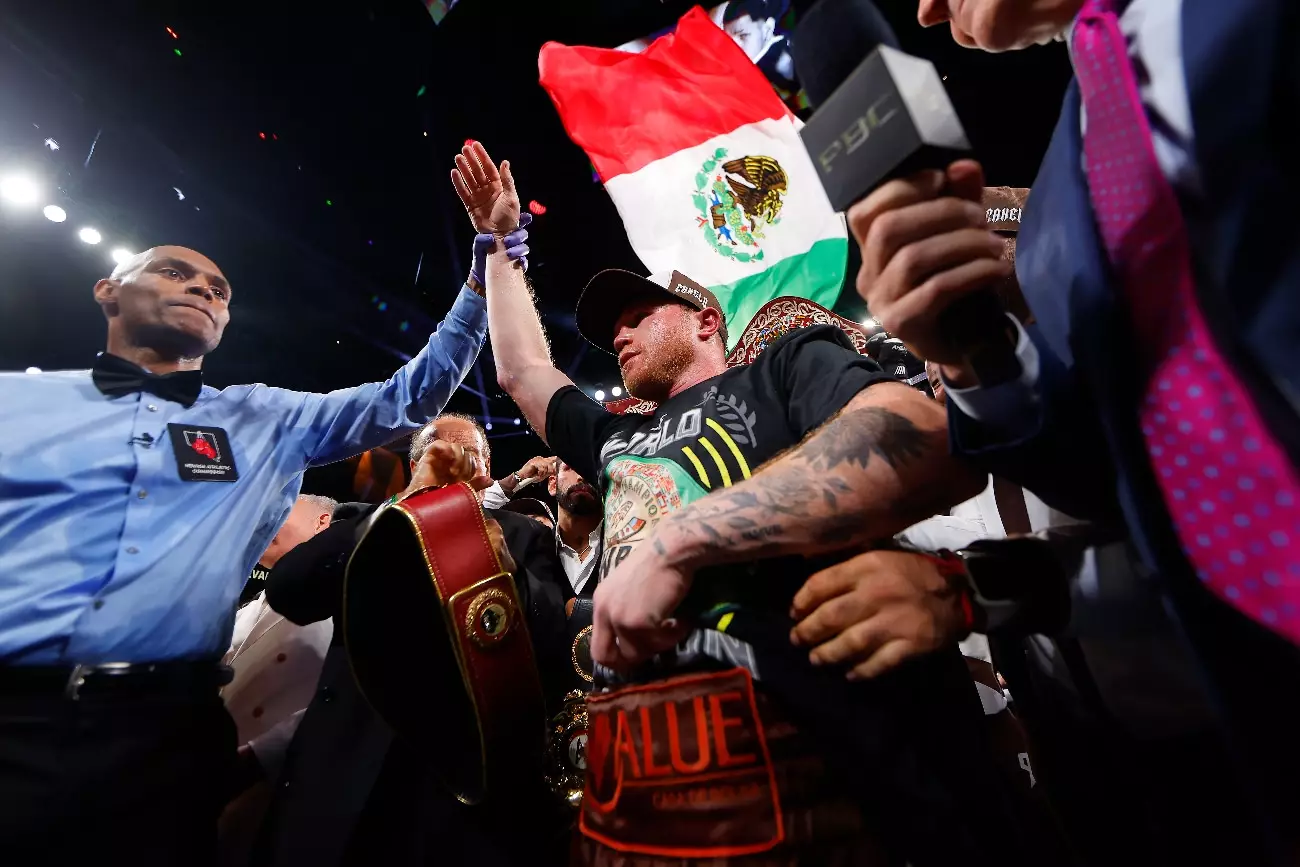Terence Crawford’s call-out of Canelo Alvarez following his victory over Edgar Berlanga has sparked considerable discussion among boxing fans and analysts alike. While Crawford used social media to amplify his challenge, enlisting figures like Turki Alalshikh for additional support, it raises an important question: Is Crawford genuinely interested in testing himself against one of boxing’s elite, or is this merely an opportunistic move aimed at securing a lucrative payday? The latter sentiment seems prevalent among boxing enthusiasts who feel that Crawford’s actions are less about the sport’s integrity and more about capitalizing on Alvarez’s status as a cash cow in the boxing world.
Canelo Alvarez, who previously dismissed the prospect of facing Crawford because of significant weight class differences, appears justified in maintaining a cautious approach. His recent comments, highlighting Crawford’s struggles when moving up just one weight class, speak to the legitimacy of Alvarez’s position. After all, if a fighter can’t convincingly handle a modest weight increase, the prospect of them competing successfully at a higher weight is dubious. The struggles that Crawford faced in his junior middleweight debut against Israil Madrimov illustrate this concern; the narrow nature of that fight raises questions about his capacity to compete against elite fighters at 168 pounds.
Perceptions of Greed and Integrity
Moreover, the expectations placed on Canelo by fighters like Crawford can seem somewhat disheartening. Many view Crawford’s pursuit of a fight with Alvarez as an attempt to secure not just a high-stakes match but also a substantial financial reward. The perception among fans is that the demand comes from a place of greed rather than the honorable ambition of being the best in the sport. Instead of proving himself by moving up the ranks and facing the top contenders at 168 pounds—like Caleb Plant, Christian Mbilli, or Diego Pacheco—Crawford appears to be advocating for a shortcut to greatness through a fight that would grant him instant recognition and financial gain.
Furthermore, a more distasteful aspect of this scenario is the tendency for fighters to treat Canelo as a mere cash register rather than an opponent to be respected and challenged. The implications are twofold: it diminishes the sport’s authenticity and showcases a troubling trend where commercial interests overshadow the noble pursuit of athletic excellence. True champions seek to challenge themselves, taking the necessary paths to earn their place among the elite.
The Future Landscape of Boxing
Crawford’s actions highlight a broader issue in boxing: the balance between financial gain and the desire for genuine competition. The sport needs athletes who are willing to earn their accolades through dedicated effort rather than relying on the established stars for easy oppurtunities. This is crucial not just for their own integrity as fighters but for the sport itself, which thrives on authentic competition that tests the limits of human capability.
As Crawford navigates his career, it is essential for him and others in similar positions to reevaluate what it means to be a contender in boxing. Genuine ambition must be rooted in proven ability and a willingness to engage in competitive bouts, rather than a singular focus on financial reward. Ultimately, the challenge for Crawford will be not just to rise through the ranks but also to restore the narrative of boxing back to a place where respect and authentic struggle define greatness.

